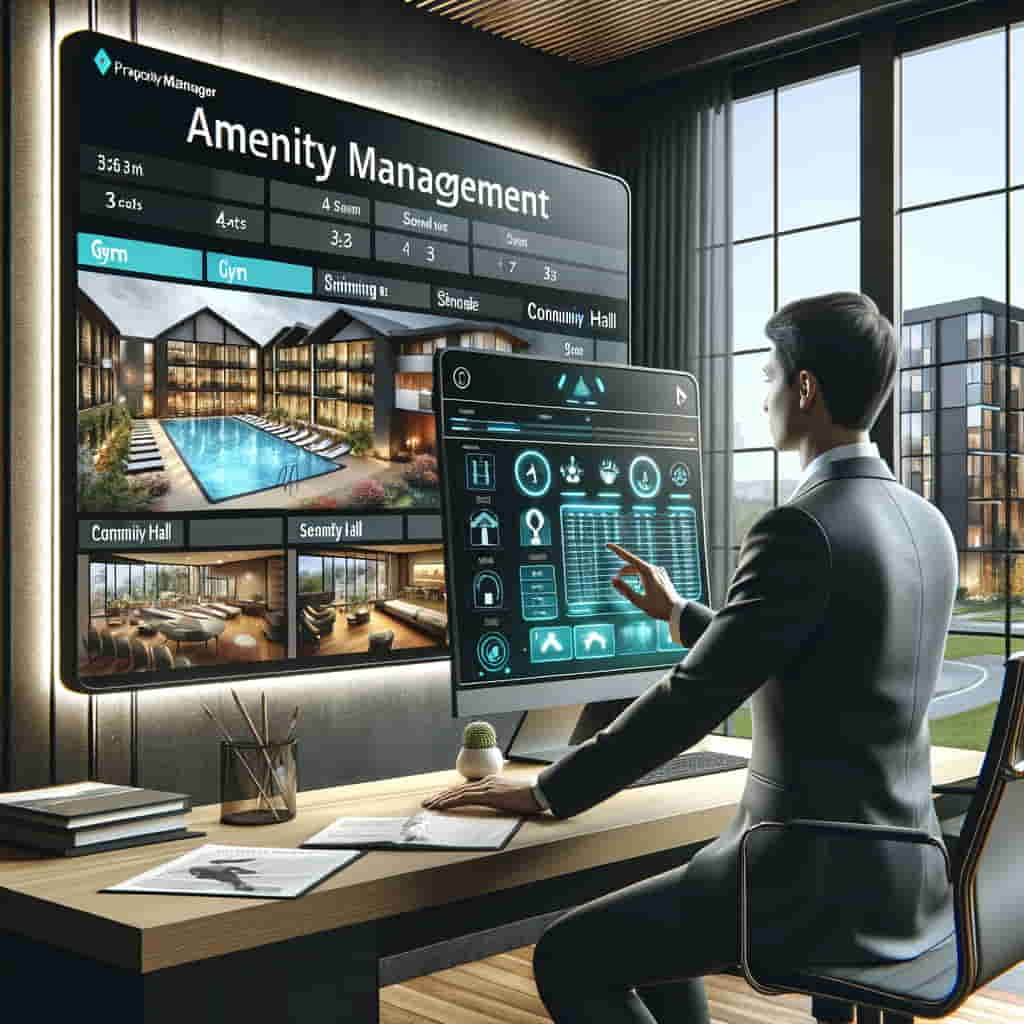The Role of Amenity Management in Modern Properties

As the real estate landscape evolves, property owners are increasingly recognizing the importance of amenity management in enhancing the appeal and value of their properties. Amenity management encompasses the strategic planning, development, and maintenance of recreational and functional features within a property, creating an environment that goes beyond the mere physical structure of a building. In this article, we delve into the key aspects and benefits of amenity management in modern properties.
I. Understanding Amenity Management
Amenities in a property extend far beyond the basic necessities of shelter. They encompass a wide range of features and services designed to enhance the quality of life for residents. These can include recreational facilities like swimming pools, fitness centers, and parks, as well as practical amenities such as parking spaces, concierge services, and security measures.
Effective amenity management involves thoughtful planning to ensure that these features not only meet the needs and desires of the residents but also align with the overall vision for the property. A well-managed set of amenities can significantly contribute to the desirability and marketability of a property.
II. Enhancing Property Value
One of the primary benefits of investing in amenity management is the positive impact it can have on property values. Numerous studies have shown that well-maintained and strategically planned amenities can substantially increase the market value of real estate. According to a report by the Urban Land Institute, properties with attractive amenities tend to command higher prices and experience faster appreciation over time.
Buyers and renters are increasingly prioritizing lifestyle factors when choosing a property, and well-managed amenities can set a property apart in a competitive market. This is particularly true for multifamily housing, where amenities can be a decisive factor for potential tenants.
III. Attracting and Retaining Residents
In today’s competitive real estate market, attracting and retaining residents is a top priority for property owners. Amenity management plays a crucial role in this regard, as it contributes to the overall living experience of residents. A study published in the Journal of Real Estate Research found that properties with desirable amenities not only attract more tenants but also experience lower turnover rates.
Quality amenities contribute to a sense of community within a property, fostering a positive living environment. From communal spaces for socializing to wellness facilities that promote a healthy lifestyle, well-managed amenities cater to the diverse needs of residents, creating a more appealing and enjoyable place to call home.
IV. Sustainable and Eco-Friendly Amenities
In recent years, there has been a growing emphasis on sustainability in real estate development. Property owners are increasingly incorporating eco-friendly amenities into their management strategies. Green spaces, energy-efficient lighting, and water conservation initiatives not only align with environmental goals but also appeal to environmentally-conscious residents.
According to a report by the National Multifamily Housing Council, properties with sustainable amenities often experience reduced operational costs and increased tenant satisfaction. Forward-thinking amenity management includes the integration of renewable energy sources, waste reduction initiatives, and the use of environmentally friendly materials, contributing to both ecological sustainability and long-term cost savings.
V. Technology Integration in Amenity Management
In the digital age, technology plays a significant role in amenity management. Property owners are leveraging smart building solutions to enhance the efficiency and convenience of amenity usage. From smart access control systems to automated maintenance scheduling, technology integration ensures that amenities are not only well-maintained but also user-friendly.
A study by the National Apartment Association highlights the growing importance of technology in amenity management, with a focus on providing residents with seamless and connected experiences. This includes features such as online reservation systems for common spaces, smart home devices, and digital communication platforms that facilitate community engagement.
VI. Challenges and Considerations in Amenity Management
While the benefits of amenity management are evident, property owners must navigate challenges in implementation. Budget constraints, changing resident preferences, and the need for ongoing maintenance are factors that require careful consideration. Strategic planning, regular feedback mechanisms, and staying abreast of industry trends are essential to overcoming these challenges and ensuring the sustained success of amenity management initiatives.
Conclusion
In conclusion, amenity management has become a cornerstone of modern property ownership. From enhancing property values to attracting and retaining residents, well-planned and carefully managed amenities contribute significantly to the overall success of a property. By embracing sustainability and leveraging technology, property owners can create environments that not only meet the needs of today’s residents but also position their properties for long-term success in a dynamic real estate market. As the real estate landscape continues to evolve, amenity management remains a key factor in shaping the future of property development and ownership.









